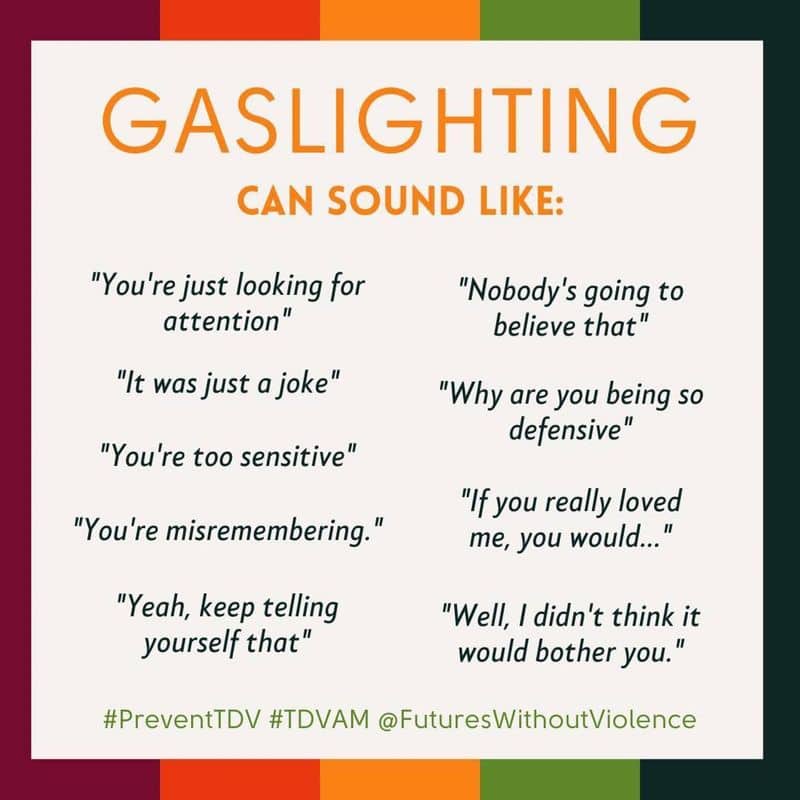Emotional abuse can be hard to spot but causes real damage to your feelings and confidence. Unlike bruises, the scars of emotional abuse hide deep inside, making them tricky to identify.
Learning these warning signs helps you protect yourself and understand when a relationship has turned harmful instead of loving.
1. Constant Criticism Chips Away
Nothing you do ever seems good enough. Your partner picks apart your appearance, decisions, and even how you load the dishwasher. These aren’t helpful suggestions—they’re attacks designed to make you doubt yourself.
Over time, even small jabs add up, leaving you walking on eggshells to avoid criticism. You might find yourself apologizing for things that aren’t your fault or changing your behavior to prevent the next cutting remark.
When praise comes, it feels rare and conditional, making you desperately seek their approval. This gradual erosion of confidence is no accident—it’s a control tactic that keeps you feeling small and dependent.
2. Isolation From Your Support System
“Your friends don’t really care about you” or “Your family is too controlling” – phrases that seem protective but actually serve a darker purpose. Your partner gradually convinces you to spend less time with loved ones, claiming they’re bad influences or don’t understand your relationship.
Phone calls get monitored. Social media accounts become joint or disappear entirely. Innocent meetups with friends trigger arguments or cold treatment afterward.
This calculated distancing isn’t love—it’s a strategy to remove your safety net. Without outside perspectives, your partner’s version of reality becomes your only reference point, making their control nearly complete.
3. Boundaries Get Trampled Repeatedly
You’ve explained a hundred times that certain topics, behaviors or touches make you uncomfortable. Yet somehow, those lines keep getting crossed, followed by excuses: “You’re too sensitive” or “I was just joking.”
Maybe they read your private messages without permission. Perhaps they pressure you into situations you’ve clearly stated you don’t want. When you protest, they act wounded, turning the situation around so you feel guilty for having boundaries at all.
Healthy relationships thrive on mutual respect for personal limits. Someone who consistently disregards your boundaries isn’t forgetful—they’re showing a fundamental lack of respect for your autonomy and comfort.
4. Jealousy Disguised As Devotion
“I just love you so much I can’t stand seeing you talk to other people.” Romantic movies might portray extreme jealousy as passionate love, but real-life jealousy quickly turns suffocating. Your partner questions innocent conversations, accuses you of flirting, or becomes hostile toward people they perceive as threats.
Casual chats with coworkers become interrogation topics later. Clothing choices get scrutinized for being “too attractive.” You find yourself avoiding normal interactions just to prevent jealous outbursts.
While mild jealousy is human, possessive behavior reveals insecurity and control issues—not devotion. True love includes trust and freedom, not suspicion and restrictions that shrink your world smaller each day.
5. The Truth Becomes Flexible
Small lies snowball into a pattern that leaves you questioning everything. Your partner denies conversations that definitely happened or claims agreements you never made. Facts shift depending on what serves them in the moment.
You might catch them in obvious untruths, only to face angry denials or accusations that your memory is faulty. The deception ranges from minor (where they were yesterday) to significant (financial decisions affecting you both).
This web of dishonesty serves a purpose: keeping you off-balance and unsure what’s real. When you can’t trust basic information, you become dependent on them to define reality—exactly where an emotional abuser wants you.
6. Gaslighting Makes You Question Reality
“That never happened. You’re imagining things again.” Gaslighting might be the most disorienting form of emotional abuse because it targets your perception of reality itself. Your partner convincingly denies their harmful behaviors, making you doubt your own experiences and memories.
They might rearrange objects then insist they were always there. They’ll rewrite history about arguments or promises, acting so confident that you wonder if you’re losing your mind. Even your emotions get invalidated: “You’re overreacting” or “Nobody normal would feel that way.”
Many victims start keeping detailed notes just to anchor themselves to reality. This deliberate manipulation isn’t miscommunication—it’s a calculated effort to control you by destabilizing your trust in yourself.
7. Walking Through An Emotional Minefield
The atmosphere feels charged with tension, like a storm that could break any second. Small matters—a misplaced item, dinner running late—trigger disproportionate anger. You’ve become an expert at reading tiny changes in their expression, tone, or body language to predict the next explosion.
Peaceful periods never last long enough to truly relax. Arguments rarely reach resolution; instead, they circle endlessly or get shelved until the next blowup. You find yourself mentally rehearsing conversations, calculating how to phrase things to minimize conflict.
This constant state of alertness takes a physical toll—headaches, stomach problems, trouble sleeping. Your body understands what your heart might not yet admit: living in perpetual tension isn’t normal or healthy.
8. Emotional Neglect Leaves You Empty
Your promotion at work is met with a shrug. Your sadness gets dismissed with “you’ll get over it.” In moments when support should be automatic, your partner is mysteriously absent—emotionally or physically.
They show enthusiasm for their own achievements and interests but minimize yours. When you’re sick, their inconvenience matters more than your comfort. During your happiest moments, they find ways to deflate your joy or make it about themselves.
This emotional abandonment creates a particular kind of loneliness—feeling alone while sitting right beside someone who supposedly loves you. The message becomes clear: your feelings and needs simply don’t matter as much as theirs, creating a painfully one-sided relationship where you give but rarely receive.
9. Manipulation Pulls Invisible Strings
“If you really loved me, you would…” This classic manipulation tactic weaponizes your good nature against you. Your partner knows exactly which emotional buttons to push—guilt, obligation, fear, or sympathy—to get what they want without asking directly.
They might use tears when confronted about bad behavior. Perhaps they withhold affection until you comply with their wishes. Silent treatment becomes punishment for perceived offenses. Comparisons to exes or others subtly pressure you to prove your worth.
The manipulation works because it’s sophisticated, playing on your desire to be kind and understanding. By the time you recognize these tactics, the pattern is established: your choices increasingly serve their needs while your own priorities fade into background noise.
10. Your Sense Of Self Slowly Disappears
Remember when you loved painting, had strong opinions, and made decisions confidently? Emotional abuse gradually erases these parts of you. Hobbies get mocked until you abandon them. Your viewpoints get dismissed until you stop sharing them.
Friends mention you’ve changed, becoming quieter, more anxious, less like your authentic self. You catch yourself constantly checking what your partner would think before making even minor choices—ordering food, choosing clothes, expressing opinions.
This identity erosion happens so gradually you barely notice until one day you look in the mirror and barely recognize the person looking back. This isn’t natural growth or compromise—it’s the ultimate goal of emotional abuse: replacing your identity with a version that exists primarily to meet the abuser’s needs.











